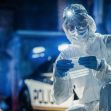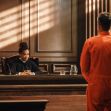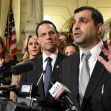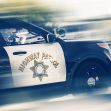On Friday, California State Senator Scott Wiener introduced Senate Bill 243. The bill aims to change the legal standards for expert testimony and forensic evidence to make it easier for falsely accused individuals to challenge wrongful convictions.
Wiener said that approximately 200 people are facing extended jail sentences for serious crimes in California since 1989 based on faulty forensics and inaccurate expert testimony. He says these are the largest factors in the high rate of wrongful convictions.
The bill, called “The End Wrongful Convictions Act,” attempts to expand the definition of false evidence to include expert opinions that are “undermined by scientific research that existed at the time of the expert’s testimony.” Opinions for which there is a reasonable dispute about theory validity or methodology in the relevant scientific community would also be included in the false evidence category.
In a prepared statement, Wiener said, “The End Wrongful Convictions Act gets us one step closer to ensuring no one is sent to prison for a crime they did not commit, and it will allow those wrongfully convicted to seek freedom. Expert testimony should be based on accurate scientific facts and logic, and we need to stop allowing unreliable expert witness testimony,” he said on Friday.
The bill targets outmoded scientific technology and research as well as expert testimony that did not spring from peer-reviewed methodologies. If the bill is enacted, conclusions reached via these methods will not be admissible in court.
In 2009, the National Academy of Sciences reported problems they found regarding the quality of forensic science that varied vastly by jurisdiction. They determined that this variation was based on factors such as the competence of the investigators and the quality of instruments used.
A notable conclusion from the report is that fingerprint evidence can be prone to confirmation bias. Police find what they expect or want to find in the results. By way of demonstration, the FBI’s vaunted fingerprint unit matched prints found at the Madrid train station bombing scene in 2004 to a Portland, OR, attorney. Those same prints were later confirmed to be those of an Algerian terrorist. At the time, the FBI agents were investigating the attorney because of his recent conversion to Islam.
Another example is the case of Bill Richards of Mojave, CA, who was convicted of murdering his wife. The primary damning evidence was the expert testimony of a bite-mark pattern analyst who said a bite on the wife’s hand matched Richards’ crooked teeth. Later testing of DNA samples collected from the murder weapon, demanded by The Innocence Project, revealed that the DNA matched neither Richards nor his wife.
Melissa O’Connell, an attorney with the Northern California Innocence Project, said, “Expert testimony can be incredibly powerful to a jury and sometimes it is the main evidence establishing guilt in the highest stakes cases. If we don’t scrutinize the basis upon which expert opinions rely, even when the expert’s own community has scrutinized their work, we run the risk of convictions being based on unreliable and unsound evidence leading to wrongful convictions.”
If SB 243 is enacted, in any criminal proceeding a court would be required to determine whether an expert’s opinion and underlying materials are “based on a reliable foundation, proper methodology, and sound logic.” Any opinion or underlying materials that fail to possess all three of these qualities could not be relied upon by courts.
Wiener’s bill is not just about expert evidence and testimony in the pre-trial process. Because it also aims to facilitate the challenges made by those wrongly convicted based on faulty forensics, Jasmine Harris, associate director of policy at the California Innocence Project, said, “SB 243 will ensure that innocent people have an avenue to challenge bad convictions by looking at the faulty science used in their trials.”
Wiener has a history of working for criminal justice reform. He introduced SB 923, noting that eyewitness misidentification is another factor in the wrongful conviction rate. SB 923 clarifies the procedure police must use when obtaining testimony from eyewitnesses.
SB 243 may be acted upon as early as February 21.






